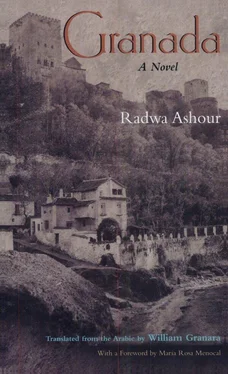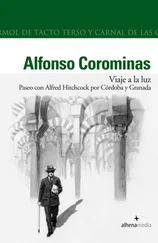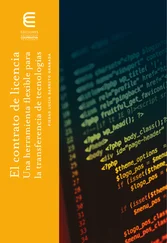Radwa Ashour - Granada
Здесь есть возможность читать онлайн «Radwa Ashour - Granada» весь текст электронной книги совершенно бесплатно (целиком полную версию без сокращений). В некоторых случаях можно слушать аудио, скачать через торрент в формате fb2 и присутствует краткое содержание. Год выпуска: 2003, ISBN: 2003, Издательство: Syracuse University Press, Жанр: Современная проза, Историческая проза, на английском языке. Описание произведения, (предисловие) а так же отзывы посетителей доступны на портале библиотеки ЛибКат.
- Название:Granada
- Автор:
- Издательство:Syracuse University Press
- Жанр:
- Год:2003
- ISBN:9780815607656
- Рейтинг книги:5 / 5. Голосов: 1
-
Избранное:Добавить в избранное
- Отзывы:
-
Ваша оценка:
- 100
- 1
- 2
- 3
- 4
- 5
Granada: краткое содержание, описание и аннотация
Предлагаем к чтению аннотацию, описание, краткое содержание или предисловие (зависит от того, что написал сам автор книги «Granada»). Если вы не нашли необходимую информацию о книге — напишите в комментариях, мы постараемся отыскать её.
Granada — читать онлайн бесплатно полную книгу (весь текст) целиком
Ниже представлен текст книги, разбитый по страницам. Система сохранения места последней прочитанной страницы, позволяет с удобством читать онлайн бесплатно книгу «Granada», без необходимости каждый раз заново искать на чём Вы остановились. Поставьте закладку, и сможете в любой момент перейти на страницу, на которой закончили чтение.
Интервал:
Закладка:
They lived the misery of each day with the bitter discovery that they had been sold like chattel. They witnessed the flight of entire families among the nobility and elite, who, in a state of utter chaos and panic, sold everything they owned, and undoubtedly everything was bought. Houses, estates, orchards, precious manuscripts, and swords, heirlooms of their grandfathers and great grandfathers. “Buy, Abu Jaafar, the price is right and buying is profitable.” But Abu Jaafar was as stubborn as a mule, and he didn’t want to buy nor sell. He was furious at the sight of the departing ships that he viewed as nothing more than floating coffins.
The Granadans watched as their princes converted to Christianity. Saad and Nasr, the sons of Sultan Abu Hasan, now called themselves Duke Fernando de Granada and Duke Juan de Granada. Saad went even one step further by joining the Castilian army as an ordinary conscript. “Rest in peace in your grave, Abu Hasan,” thought Abu Jaafar. “Sleep content, and may the breezes of Paradise blow over you. Your offspring have been leased in a rare business. They’ve certainly risen to the occasion!” The vizier, Yusuf Ibn Kumasha, who negotiated in the name of the nation and who prepared both the secret and public texts of the treaty, crowned his achievements by converting to Christianity and entering a monastery.
Abu Jaafar, now in his seventies, was becoming more taciturn as he shielded from those closest to him the inner turmoil he was suffering. He barely slept, and when he did it was never more than an hour or two. He would sit up and at the first crack of dawn leave the house and pace around the quarter until its doors were opened. At the moment when they did, he would leave.
He walked down to the bank of the Darro and strolled along the river, enjoying the Sabika and the fortresses and castles of Alhambra. He delighted in the many species of trees that sprouted up along the river, from the cypresses, palms, and pines at the foot of the hills across the river, to the fig, olive, pomegranate, walnut, and chestnut trees that graced the road that lead to Albaicin. He passed by and inspected each tree closely and then gazed at the river. When he came to the Grand Mosque, the river appeared in full view and picture-perfect. Then, looking over to the open square, he didn’t fail to notice the relentless hustle and bustle of buying and selling and the familiar voices that called out their wares. He continued his walk and headed east until he reached the Jewish Quarter and the Najd Gate, then retraced his steps back to the marketplace, passing by the Alley of the Druggists, on to the Potters, the Glass Makers, and then to the covered market where he walked through every single passageway, running his fingers through the cottons, wools, and silks, both raw and embroidered, while the merchants were busy measuring and weighing, buying and selling, on the cuff or haggling. When he left the covered market and cut across Zacatin Street, he found himself once again at the Grand Mosque. He went in, performed his ritual ablutions, completed the four prostrations required of the midday prayer, and two extra ones in observance of the Prophets custom, before returning to his shop in the Paper Makers’ Quarter.
On another day he would either follow exactly the same route, or he would begin by paying a visit to his son and his parents at the Sahl Ibn Malik Cemetery. He would recite the opening chapter of the Quran, and then cross one end of the quarter to the other to visit the Potters’ Cemetery and speak with a friend of his who was buried there. Abu Jaafar always kept a vigilant eye on Granada’s buildings, its schools, mosques, hospices, shrines, and public gardens, as though he had been commissioned to draw detailed sketches of them. He would leave the house and come back without talking to a soul, and when it was absolutely necessary to do so, he said only what had to be said.
There wasn’t much work in the shop since business became scarce with people emigrating, and those who remained couldn’t afford the luxury of even thinking about binding expensive manuscripts. His wife blamed his silence on their financial difficulties and tried to help solve their problems, but every time she raised the subject, he cut her off.
“Sell the house at Ainadamar.”
“It belongs to Hasan. I bequeathed it to his father, and now it’s his to inherit.”
“What about the manuscripts?”
“Those must remain for Hasan and Saleema. It’s all I have left to give them.”
“You could let Saad and Naeem go.”
“They don’t deserve that. Besides, shall I throw them out into the streets?”
“There’s really no need to send the children to school.”
“Saleema loves to learn, and Hasan has to!” Abu Jaafar acted as though the situation was under control and that nothing at all had changed.
“How will we manage, Abu Jaafar?”
“I’ve got little left of this life, so let me do as I please.”
The anxieties that gnawed away at the hearts of the adults and sent many of them to an early grave had little effect on the young men who sprouted to maturity with hearts palpitating in the presence of young girls with kohl-lined eyes and safely concealed firm young breasts that toyed with their steaming imaginations.
Saad and Naeem laughed whenever they reminisced about the time they first met, when Saad would say that Naeem was arrogant for someone who had the size and color of a mouse, while Naeem complained that Abu Jaafar inflicted on him an insufferable, ill-tempered coworker. They were no longer merely colleagues who spent their young lives sharing a room in the same shop where they worked, but intimate friends who knew each other s life story as if it were their own. They were never apart, and the inhabitants of the Paper Makers’ Quarter referred to them as “two fannies in one pair of drawers.” [10] This is the literal translation of an Arabic expression that is the functional equivalent of two peas in a pod.”
They were always seen together in their comings and goings, dressed in the same clothes that they shared, although Saad’s clothes always seemed a bit too baggy for Naeem and Naeem’s a tad tight for Saad. Saad was a year older than Naeem. He had an olive complexion and a smooth face with a sullen and stern look. He grew a mustache that camouflaged his big nose and thick lips. His big black eyes that used to arouse attention only a few years ago now appeared less conspicuous as his eyebrows grew thicker. But that was the most distinguished feature of his face, the depth of his black eyes and a sullen, gaunt look that eclipsed his other features. He was of medium height and build with broad shoulders. Naeem was much thinner than his friend although they were practically the same height. He had a complexion that bordered on the yellowish, with finer features and silky, chestnut hair. There was a faint shadow of blond fuzz above his upper lip that he longed to see fully grown, but that hadn’t yet. His soft features and his honey-colored eyes that sparkled with a gleam of intelligence added sweetness and elegance to his face.
Naeem still looked like a young boy although he was now fourteen. And besides, he was one who fell in love easily, head over heels, living in a world of perpetual passion. He would see a girl whose beauty captivated him and his heart would beat a mile a minute. His face would beam, and like a madman he would inquire about her name, family, and where she lived. His feet would drag him each day to her neighborhood in the hopes of getting a glimpse of her. He would repeat her name and write it on a small amulet he kept around his neck for two, three, or four weeks, until another object of his affection would take her place in his heart and in his amulet.
Saad laughed and made fun of Naeem, which angered him, and they would end up quarreling practically all day long. But at night, when they closed the door of the shop, Naeem longed to stop his bickering and confront Saad: “You hurt my feelings!”
Читать дальшеИнтервал:
Закладка:
Похожие книги на «Granada»
Представляем Вашему вниманию похожие книги на «Granada» списком для выбора. Мы отобрали схожую по названию и смыслу литературу в надежде предоставить читателям больше вариантов отыскать новые, интересные, ещё непрочитанные произведения.
Обсуждение, отзывы о книге «Granada» и просто собственные мнения читателей. Оставьте ваши комментарии, напишите, что Вы думаете о произведении, его смысле или главных героях. Укажите что конкретно понравилось, а что нет, и почему Вы так считаете.












